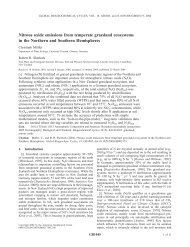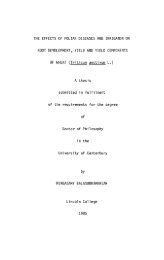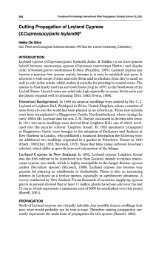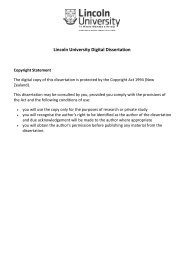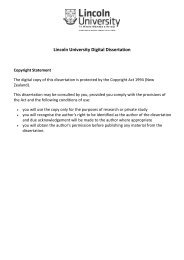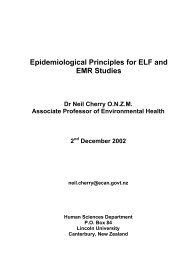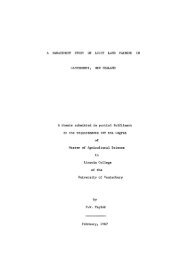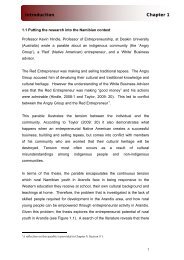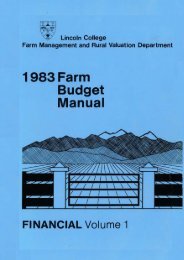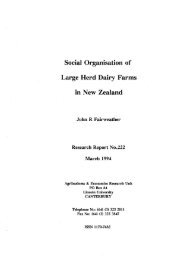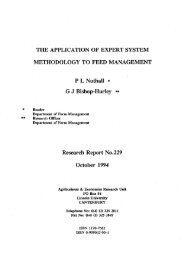Lincoln University Digital Dissertation - Lincoln University Research ...
Lincoln University Digital Dissertation - Lincoln University Research ...
Lincoln University Digital Dissertation - Lincoln University Research ...
Create successful ePaper yourself
Turn your PDF publications into a flip-book with our unique Google optimized e-Paper software.
Despite the significant role horticulture has had in determining the self-<br />
sufficiency of many Maori, much change has occurred subsequent to<br />
colonisation by Pakeha. Colonisation has contributed to a drift away from the<br />
traditional importance of self-sufficiency and provision, as described by<br />
Grower 1:<br />
“Probably to be blunt is to say that colonisation has changed Maori society<br />
from the point of being subsistence to now being almost reliant on other<br />
elements of society to feed themselves, and its also created a situation where<br />
Maori wanting more and more of the other life, the extra goods you know, the<br />
chocolates and the flash clothes and all of that sort of thing has moved them<br />
away from horticulture being able to provide that…” (Grower 1)<br />
Growers recognise the unique relationship that Maori have with taewa but<br />
also the broader opportunities taewa production facilitates by providing that<br />
opportunity for Maori to get back to their horticultural roots. Taewa are not a<br />
difficult crop to grow, which makes them an ideal ‘first-step.’ Once people see<br />
that they can grow taewa, the idea is that they will endeavour to pursue<br />
cultivation in other horticulture. Therefore it is not just about the provisions of<br />
taewa, but also facilitating a return to the whenua, potentially leading to<br />
involvement with other crops and land-management practices.<br />
“Horticulture is an element of life for a lot of people; you know to produce the<br />
kai that they eat… [even if] they are not growing traditional crops but they are<br />
still working the whenua.” (Grower 1)<br />
“It [taewa] gives those people insight or know-how… to grow their own<br />
garden, to make themselves self-sufficient. You know a lot of those people<br />
have got plenty of ground but they are a bit to tired to put the garden in for<br />
themselves. Maybe this [taewa] might be an initiative for them to grow their<br />
own garden… and not only that, if they can grow their spuds [taewa] and grow<br />
their kamokamo, well then they think well I can grow some pumpkin, carrots,<br />
cabbage and that sort of stuff. Just a starting point; that was the thinking<br />
50



